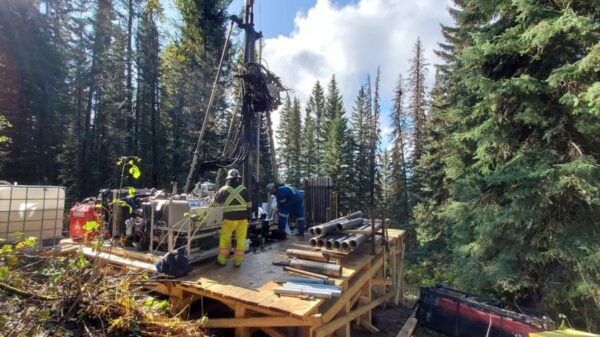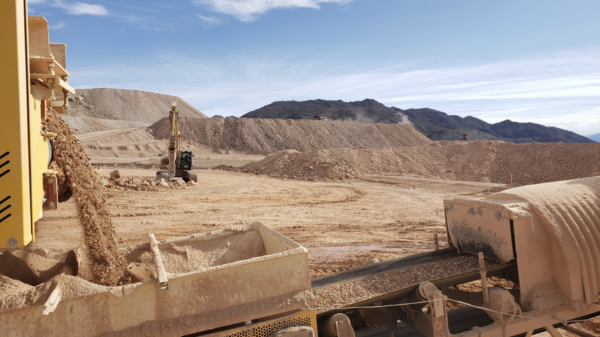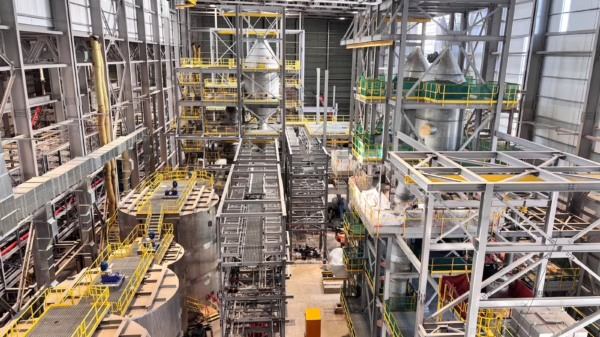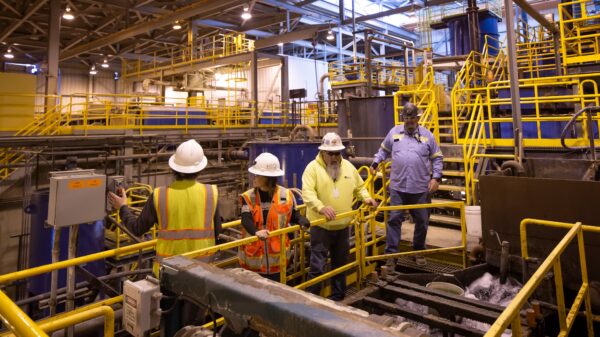Australian company, Ioneer Ltd (ASX: INR) (NASDAQ: IONR), received approval from the U.S. government to develop the Rhyolite Ridge Lithium-Boron Project located in Esmeralda County, Nevada.
Announced on Friday, this project is poised to become a pivotal source of lithium in the United States, aiming to bolster domestic supply chains for critical minerals essential for electric vehicle batteries and renewable energy technologies.
The approval of the Rhyolite Ridge Project is set to bring significant economic benefits to the local community, with projected annual wages reaching approximately USD$125 million during the mine’s operation and the creation of hundreds of high-paying jobs.
However, the project has sparked debate over its environmental impact, particularly concerning the conservation of Tiehm’s buckwheat, a rare wildflower native to the area. The U.S. Fish and Wildlife Service has determined that although the mine will affect some of the plant’s critical habitat, it will not threaten the species’ survival.
Environmental groups, including the Center for Biological Diversity, have voiced concerns and are preparing legal actions to challenge this decision.
Ioneer aims to reduce environmental impact through several initiatives. It plans to power most on-site operations with CO2-free energy, thereby lowering greenhouse gas emissions. The project design also incorporates water recycling, which should reduce water use per tonne of lithium significantly compared to current U.S. operations. Additionally, Ioneer intends to use equipment that meets rigorous environmental standards, such as those established by the EPA.
Read more: Nevada lithium mine edges closer to approval despite environmental concerns
Read more: Ganfeng Lithium invests over half a billion into Türkiye battery production
Permit allows for construction on lithium plant to start in 2025
The Rhyolite Ridge Project serves as a strategic initiative to reduce U.S. reliance on foreign lithium supplies, especially from China, which currently handles most lithium processing.
The project includes plans for an on-site chemical processing facility that will process lithium domestically, enhancing national security regarding the supply of critical minerals. This approval aligns with the broader U.S. policy goals under the Biden administration to strengthen domestic production of minerals essential for the green energy transition.
The Bureau of Land Management (BLM) has actively engaged with multiple local and indigenous communities, including various Native American tribes, during the project’s development. This engagement addresses the cultural, environmental, and economic concerns raised by these groups.
Furthermore, the BLM issued the formal Record of Decision (ROD) following last month’s release of the final Environmental Impact Statement (EIS), which incorporated public feedback from the April-June open comment period.
This decision concludes the rigorous and comprehensive federal permitting process that began in early 2020. Ioneer started its pre-permitting work in early 2019 and formally entered the final stages of the National Environmental Policy Act (NEPA) review in December 2022, as required for all projects on federal lands.
“This permit gives us a license to commence construction in 2025 and begin our work in creating hundreds of good-paying rural jobs, generating millions in tax revenue for Esmeralda County, and bolstering the domestic production of critical minerals,” said Bernard Rowe, Ioneer managing director.
Rhyolite Ridge will supply batteries for over 370,000 American-made electric vehicles each year and process crucial battery materials on-site in the United States. The project is expected to create around 500 jobs during construction and 350 high-paying jobs during its decades of operation.
.














